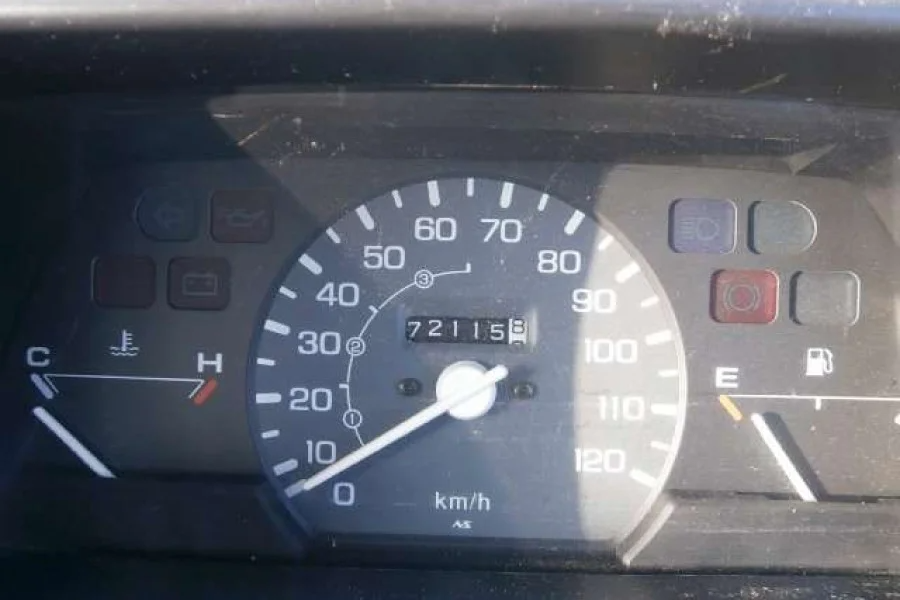Addressing Honda Acty Overheating Problems
When it comes to zipping around town or navigating narrow streets with ease, the Honda Acty stands out as a compact powerhouse. However, even the most reliable vehicles can encounter issues, and one of the most common concerns is the Honda Acty overheating. If you’ve found yourself in a hot situation with your Acty, fear not! In this blog post, we’ll delve into some possible reasons why your trusty little vehicle might be running hotter than usual and how you can address these issues effectively.
Clogged Radiator: The Culprit Behind Rising Temperatures
One of the primary reasons behind a Honda Acty overheating is a clogged radiator. Over time, debris, dirt, and sediment can accumulate within the radiator, hindering its ability to effectively dissipate heat. As a result, the engine temperature begins to soar, leading to overheating issues. Regular maintenance, including flushing the radiator and ensuring proper coolant levels, can help prevent this issue from occurring.
Faulty Thermostat: Regulating Temperatures Gone Awry
The thermostat plays a crucial role in regulating the engine’s temperature by controlling the flow of coolant. However, if the thermostat becomes faulty or stuck in the closed position, it can prevent coolant from circulating properly, leading to the Honda Acty overheating. Symptoms of a malfunctioning thermostat include rapid temperature fluctuations and inconsistent heating in the cabin. Replacing the thermostat at the first sign of trouble can help avoid more serious engine problems down the road.
Leaking Coolant Hoses: Losing Coolant, Gaining Heat
Another common culprit behind overheating in the Honda Acty is leaking coolant hoses. These hoses transport coolant from the radiator to the engine, helping to regulate its temperature. However, over time, these hoses can degrade, develop cracks, or become loose, leading to coolant leaks. When coolant levels drop, the engine becomes susceptible to overheating. Regularly inspecting coolant hoses for signs of wear and tear and promptly replacing any damaged hoses can help prevent the Honda Acty overheating due to coolant leaks.
Faulty Water Pump: Circulation Woes
The water pump plays a crucial role in circulating coolant throughout the engine, helping to regulate its temperature. However, if the water pump becomes faulty or begins to fail, it can impede the flow of coolant, leading to overheating. Common signs of a failing water pump include coolant leaks, a whining noise coming from the engine, and overheating. Replacing the water pump as soon as possible can prevent further damage to the engine.
Dirty or Blocked Cooling Fans: Hindered Heat Dissipation
The cooling fans in your Honda Acty play a vital role in dissipating heat from the radiator. However, if these fans become dirty or blocked by debris, they may fail to operate efficiently, leading to inadequate heat dissipation and the Honda Acty overheating. Regularly inspecting and cleaning the cooling fans can help ensure they function properly and prevent overheating issues.
5 Preventive Maintenance Tips to Avoid Honda Acty Overheating
Driving a Honda Acty can be a breeze, but just like any vehicle, it requires regular maintenance to keep it running smoothly. One of the most critical aspects of maintenance is preventing overheating, which can lead to costly repairs and inconvenient breakdowns. Here are 5 preventive maintenance tips to help you keep your Honda Acty cool and running efficiently:

Regular Coolant Checks and Flushes:
Coolant, also known as antifreeze, plays a crucial role in regulating your engine’s temperature. Over time, coolant can become contaminated or lose its effectiveness, putting your Honda Acty at risk of overheating. Make it a habit to check your coolant levels regularly and top them up as needed. Additionally, schedule coolant flushes according to your vehicle manufacturer’s recommendations to ensure that old coolant is replaced with fresh, clean fluid. This simple maintenance task can go a long way in preventing overheating issues.
Inspect the Cooling System Components:
The cooling system of your Honda Acty consists of various components, including the radiator, hoses, water pump, and thermostat. Inspecting these components regularly can help you catch potential issues before they escalate into overheating problems. Look for signs of leaks, corrosion, or damage in the radiator and hoses. Ensure that the water pump is functioning correctly and that the thermostat is opening and closing as it should. Addressing any issues promptly can prevent overheating and prolong the lifespan of your vehicle’s cooling system.
Clean the Radiator and Cooling Fans:
Dirt, debris, and bugs can accumulate on the surface of your Honda Acty’s radiator and cooling fans, obstructing airflow and reducing their efficiency. Periodically clean the radiator fins and cooling fan blades to remove any buildup and ensure optimal cooling performance. You can use a soft brush or compressed air to gently dislodge debris from the radiator fins and a damp cloth to wipe down the cooling fan blades. Regular cleaning will help prevent overheating and maintain proper engine temperature regulation.
Monitor Engine Temperature Gauges:
Your Honda Acty is equipped with engine temperature gauges or warning lights that indicate when the engine is running too hot. Pay attention to these gauges and take immediate action if you notice any signs of overheating, such as a sudden increase in temperature or the illumination of warning lights. Pull over to a safe location, turn off the engine, and allow it to cool down before continuing your journey. Ignoring overheating warnings can lead to severe engine damage, so always err on the side of caution.
Avoid Overloading and Heavy Towing:
Overloading your Honda Acty with excessive cargo or towing heavy loads can put added strain on the engine and cooling system, increasing the risk of overheating. Be mindful of your vehicle’s weight limits and avoid exceeding them to prevent unnecessary stress on the engine. If you need to tow a trailer or caravan, make sure it’s within your Honda Acty’s towing capacity and use proper towing equipment. By avoiding overloading and heavy towing, you can help your vehicle maintain optimal performance and prevent overheating on the road.
Conclusion: Keeping Your Honda Acty Cool and Collected
While overheating can be a concerning issue for Honda Acty owners, it’s essential to address the root cause promptly to prevent more severe damage to the engine. By regularly maintaining your vehicle, including flushing the radiator, inspecting coolant hoses, and replacing faulty components, you can keep your Acty running cool and collected for miles to come. Remember, a little preventative maintenance can go a long way in preserving the performance and reliability of your beloved Honda Acty.


